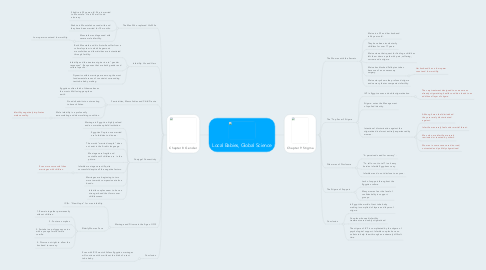
1. Chapter 8 Gender
1.1. The Man Who replaced His Wife
1.1.1. Shahira is 25 years old. She is married to Moustafa. He is 43 well to do attorney.
1.1.2. Shahira is Moustafa's second wife and they have been married for 10 months.
1.1.3. Moustafa was diagnosed with severe male infertility.
1.1.3.1. Low sperm countand low motility.
1.2. Infertility: His and Hers
1.2.1. Both Moustafa and his first wife suffer from a cultural system in which hegemonic masculinities and femininities are instantiated through fertility.
1.2.2. Infertility and the treatment give rise to "gender responses". Responses that are both gender and cultural specific.
1.2.3. Dynamics within marriage are among the most fundamental arenas of constraint surrounding test tube baby making.
1.3. Femininities, Masculinities and Child Desire
1.3.1. Egyptians often think of themselves as the most child-loving people on earth.
1.3.2. No adult admits to not wanting to have children.
1.3.3. Male infertility is a profoundly emasculating and demoralizing condition.
1.3.3.1. Infertility negatively implicates male sexuality.
1.4. Conjugal Connectivity
1.4.1. Marriage in Egypt is a highly valued and a normative upheld institution.
1.4.2. Egyptian Copts once married are forbidden to divorce.
1.4.3. The words "married couple" does not exist in the Arabic language.
1.4.4. Marriages are fragile and unstable until children are in the picture.
1.4.5. Infertile marriages are still quite successful despite all the negative factors.
1.4.5.1. Even more successful then marriages with children.
1.4.6. Marriages are beginning to turn more towards compassionate love bonds.
1.4.7. Infertile couples seem to have a stronger bond that forms over childlessness.
1.5. Marriage and Divorce in the Age of ICIS
1.5.1. ICIS= "New Hope" for men infertility.
1.5.2. Elderly Women Face
1.5.2.1. 1. Remain together permanently without children.
1.5.2.2. 2. Foster an orphan
1.5.2.3. 3. Partake in a polygynous union with a younger more fertile co-wife.
1.5.2.4. 4. Divorce out right to allow the husband to remarry.
1.6. Conclusion
1.6.1. Even with ICIS most childless Egyptian marriages will continue with or without the birth of a test tube baby.
2. Chapter 9 Stigma
2.1. The Woman with the Secrets
2.1.1. Maisa is a 39 and her husband in 46 years old.
2.1.2. They have been involuntarily childless for over 17 years.
2.1.3. Maisa views their quest for finding a child has left them down a path with pain, suffering, sorrow and a stigma.
2.1.4. Maisa has blocked Fallopian tubes because of an unnecessary surgery.
2.1.4.1. Her husband has a low sperm count and low motility.
2.1.5. Maisa story shows the profound stigma and secrecy that accompanies infertility.
2.2. The "Top Secert" Stigma
2.2.1. IVF in Egypt causes a double stigmatization.
2.2.1.1. The very treatment designed to overcome an already stigmatizing health condition leads to an additional layer of stigma.
2.2.2. Stigma: notes the Management of spoiled identity.
2.2.3. Intentional discrimination against the stigmatized is almost entirely experienced by women.
2.2.3.1. Although men feel diminished they are rarely discriminated against.
2.2.3.2. Infertile men rarely feel under martial threat.
2.2.3.3. Men who are infertile are rarely reminded or taunted by others.
2.2.3.4. Women in some cases are divorced, outcasted and publicly stigmatized.
2.3. Dilemmas of Disclosure
2.3.1. "A perceived need for secrecy".
2.3.2. "To tell or not to tell" is a heavy burden infertile Egyptians carry.
2.3.3. Infertile men do not disclose to anyone.
2.4. The Stigma of Support
2.4.1. Lack of support throughout the Egyptian culture.
2.4.2. Many women fear the level of confidentiality in support groups.
2.5. Conclusion
2.5.1. In Egypt the world of test tube baby making is complied of layers and layers of stigma.
2.5.2. Couples who seek infertility treatments are doubly stigmatized.
2.5.3. The stigma of IVF is complicated by the stigma of psychological support. Infertile couples have no outlets to help them through an extremely difficult time.
